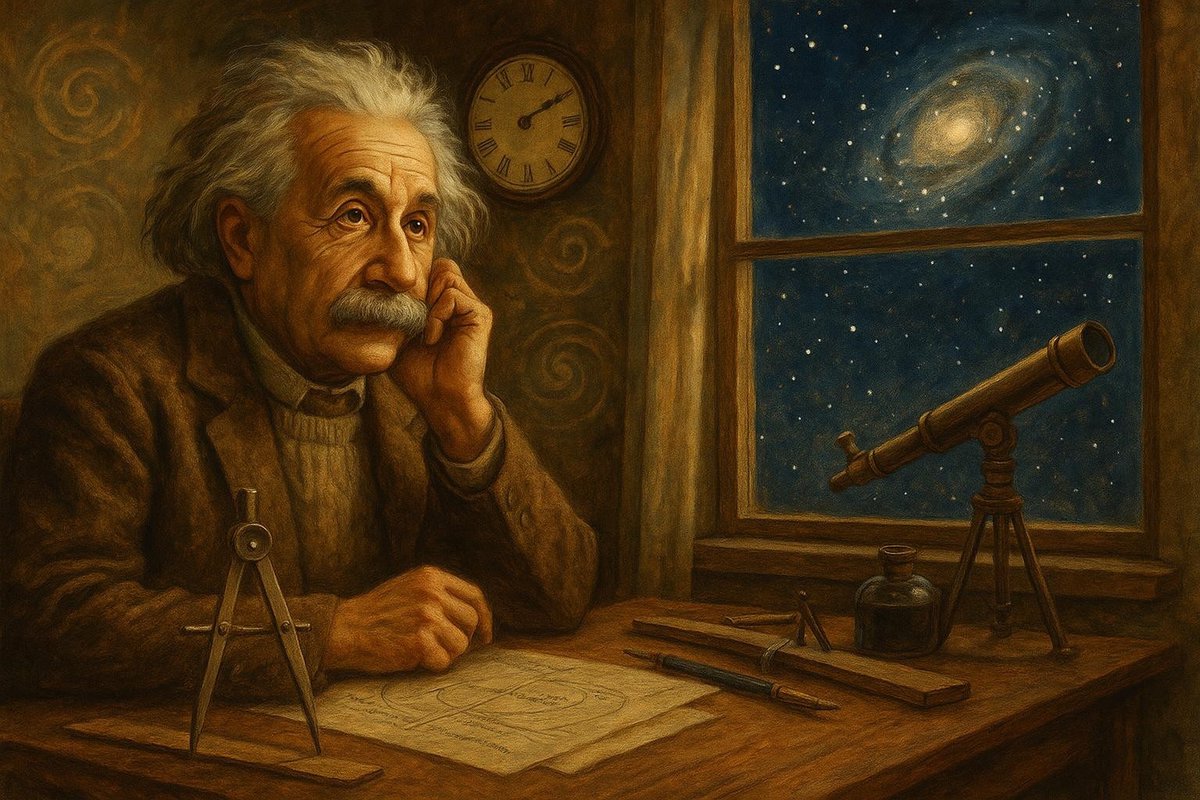
Einstein’s Early Influences: Seeds of Genius
Albert Einstein’s childhood was filled with curiosity and wonder. As a young boy in Germany, he was captivated by a simple compass, leading him to ponder the invisible forces shaping our world. His father’s electrical engineering business provided him with early exposure to the marvels of technology, fostering a fertile ground for his burgeoning imagination. But what truly set him apart?
- Influence of family’s engineering background
- Curiosity sparked by everyday objects
- Early understanding of invisible forces in nature
Interestingly, it was his deep curiosity and the ability to question the ordinary that laid the foundation for his future breakthroughs. The cultural milieu of late 19th-century Europe, with its blend of scientific inquiry and philosophical contemplation, further fueled his intellect. No wonder this environment nurtured a mind that dared to dream beyond the visible spectrum.
Crafting Mental Models: The Power of Visualization
Einstein’s strength lay in his unique approach to problem-solving: visualizing complex concepts through mental models. One can imagine a young Albert, eyes closed, picturing himself riding a beam of light. This vivid imagery later crystallized into his theory of relativity, transforming our grasp of time and space.
- Use of thought experiments to simplify complex ideas
- Imagination as a tool for scientific exploration
- Development of relativity through visual thinking
Of course, such innovative thinking didn’t emerge in a vacuum. It was a product of his willingness to stray from conventional paths, combined with an era that celebrated intellectual audacity. As time goes on, the power of imagination in scientific discovery only becomes more apparent. What if everyone could think like Einstein?
Challenges & Resilience: Overcoming Intellectual Hurdles
Despite his later fame, Einstein faced numerous hurdles, including academic struggles and professional setbacks. Interestingly, he was a rebellious student, often clashing with rigid educational structures that stifled his creative thinking. Yet, these challenges only strengthened his resolve.
- Initial academic struggles and unconventional schooling
- Professional obstacles and perseverance
- Resilience in the face of skepticism
In a world that wasn’t always ready for his ideas, Einstein’s resilience was key. He famously said, “Imagination is more important than knowledge,” a testament to his belief in the transformative power of creative thought. Isn’t it inspiring how his perseverance paved the way for monumental scientific progress?
The Enduring Legacy: Impact on Science and Beyond
Einstein’s legacy is not just in the equations of relativity but in how we view the universe and ourselves. His theories reshaped scientific disciplines, from astronomy to quantum mechanics, sparking new lines of inquiry and innovation. But beyond the equations, what did he teach us?
- Transformation of scientific and cultural perspectives
- Inspiration for future generations of thinkers
- Enduring impact on technological advancements
His ability to see beyond what was known to what could be imagined continues to inspire. In a world driven by data and precision, Einstein reminds us of the value in visionary thinking. How might his mindset influence the innovators of tomorrow?
In conclusion, Albert Einstein’s journey from a curious child with a compass to a visionary scientist underscores the power of imagination in driving scientific discovery. His mental models and resilience in the face of skepticism changed the course of history, leaving a legacy that continues to inspire curiosity and innovation.
Fuel Someone Else’s Curiosity
Let’s share the wonder of Einstein’s imaginative journey with friends, family, or even a curious stranger. By spreading his story, we can ignite the spark of curiosity in others, encouraging them to dream beyond the limits of what is known. Who knows? The next great idea might just be a conversation away.

Leave a Reply